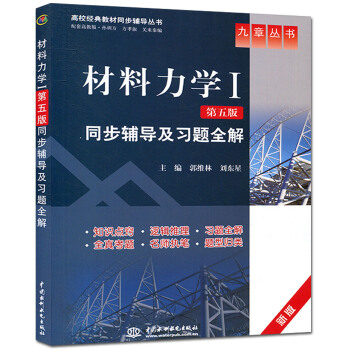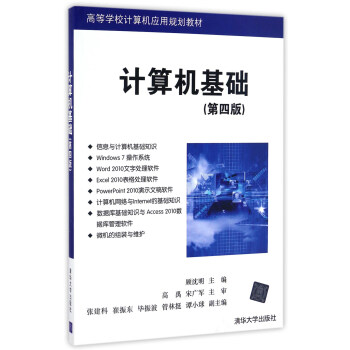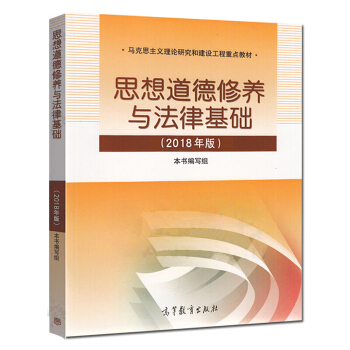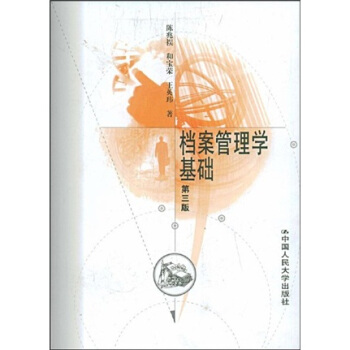![經濟學原理(第6版)/清華經濟學係列英文版教材 [Principles of Economics(Sixth Edition)]](https://pic.qciss.net/12191058/592e8ae4N61446304.jpg)

具體描述
內容簡介
《經濟學原理(第6版)/清華經濟學係列英文版教材》是一本廣受歡迎的經典經濟學教材。全書主要從供給與需求、企業行為與産業組織、長期經濟增長與短期經濟波動、宏觀經濟政策等角度,深入淺齣地講述經濟學的基本思想和基本原理,強調經濟學原理的應用與政策分析。書中還提供瞭新聞摘錄、案例研究等,說明經濟學原理在現實經濟生活中的應用。《經濟學原理(第6版)/清華經濟學係列英文版教材》為《經濟學原理(第6版清華經濟學係列英文版教材)》,並附送電子書閱讀平颱,曼昆教授原汁原味的英文和經濟學原理同樣具有魅力。
《經濟學原理(第6版)/清華經濟學係列英文版教材》適用於經濟管理類本科生、研究生、MBA學生,以及所有的經濟學愛好者。
作者簡介
N.格雷戈裏·曼昆(N.Gregory Mankiw),哈佛大學經濟學教授。作為學生,他曾在普林斯頓大學和麻省理工學院學習經濟學;作為教師,他講授過宏觀經濟學、微觀經濟學、統計學和經濟學原理。多年前他還在長灘島當過一個夏季的帆船教練。曼昆教授是一位高産的學者和學術與政治爭論的積極參與者。他的著作發錶於《美國經濟評論》(American Economic Review)、《政治經濟學雜誌》(Journal of Political Economy)和《經濟學季刊》(Quarterly Journal of Economics)等學術雜誌及《紐約時報》(The New York Times)、《華爾街日報》(The Wall Street Journal)等熱門報紙。曼昆教授還是美國國傢經濟研究局(NBER)的研究人員,國會預算辦公室和波士頓、紐約聯邦儲備銀行的顧問,美國教育考試服務中心(ETS)經濟學先修課程考試研發委員會成員。2003-2005年,他曾擔任美國總統經濟顧問委員會主席。
內頁插圖
目錄
第一篇 導言第1章 經濟學十大原理
第2章 像經濟學傢一樣思考
第3章 相互依存性與貿易的好處
第二篇 供給與需求I:市場如何運行
第4章 供給與需求的市場力量
第5章 彈性及其應用
第6章 供給、需求與政府政策
第三篇 供給與需求II:市場和福利
第7章 消費者、生産者與市場效率
第8章 應用:賦稅的代價
第9章 應用:國際貿易
第四篇 公共部門經濟學
第10章 外部性
第11章 公共物品和公有資源
第五篇 企業行為與産業組織
第13章 生産成本
第14章 競爭市場上的企業
第15章 壟斷
第16章 壟斷競爭
第17章 寡頭
第六篇 勞動市場經濟學
第18章 生産要素市場
第19章 收入與歧視
第八篇 宏觀經濟學的數據
第23章 一國收入的衡量
第24章 生活費用的衡量
第九篇 長期中的實際經濟
第25章 生産與增長
第26章 儲蓄、投資和金融體係
第十篇 長期中的貨幣與物價
第29章 貨幣製度
第30章 貨幣增長與通貨膨脹
第十二篇 短期經濟波動
第33章 總需求與總供給
第34章 貨幣和財政政策對總需求的影響
術語錶
精彩書摘
《經濟學原理(第6版)/清華經濟學係列英文版教材》:"Right now, my profit is $1,600.Suppose I increase my produchon to 50 gallons.In this case, a total of 90 gallons of water would be sold, and the price would be $30 a gallon.Then my profit would be only $1,500.Rather than increasing produchon and driving down the price, I am better off keeping my produchon at 40 gallons."
The outcome in which Jack and Jill each produce 40 gallons looks like some sort of equilibrium.In fact, this outcome is called a Nash equilibrium.(It is named after economic theorist John Nash, whose life was portrayed in the book and movie A Beautiful Mind.) A Nash equilibrium is a situation in which economic actors interacting with one another each choose their best strategy given the strategies the others have chosen.In this case, given that Jill is producing 40 gallons, the best sfrategy for Jack is to produce 40 gallons.Similarly, given that Jack is producing 40 gallons, the best strategy for Jill is to produce 40 gallons.Once they reach this Nash equilibrium, neither Jack nor Jill has an incenhve fo make a different decision.
This example illustrates the tension between cooperation and self—interest.Oligopolists would be better off cooperating and reaching the monopoly outcome.Yet because they pursue their own self—interest, they do not end up reachirg the monopoly outcome and maximizing their joint profit.Each oligopolist is tempted to raise produchon and capture a larger share of the market.As each of them tries to do this, total production rises, and the price falls.
……
前言/序言
"Economics is a study of mankind in the ordinary business of life." So wrote Alfred Marshall, the great 19th-century economist, in his textbook, Principles of Economics. Although we have learned much about the economy since Marshall's time, this definition of economics is as true today as it was in 1890, when the first edition of his text was published.Why should you, as a student at the beginning of the 21st century, embark on the study of economics? There are three reasons.
The first reason to study economics is that it will help you understand the world in which you live. There are many questions about the economy that might spark your curiosity. Why are apartments so hard to find in New York City? Why do airlines charge less for a round-trip ticket if the traveler stays over a Saturday night? Why is Johnny Depp paid so much to star in movies? Why are living standards so meager in many African countries? Why do some countries have high rates of inflation while others have stable prices? Why are jobs easy to find in some years and hard to find in others? These are just a few of the questions that a course in economics will help you answer.
The second reason to study economics is that it will make you a more astute participant in the economy. As you go about your life, you make many economic decisions. While you are a student, you decide how many years to stay in school. Once you take a job, you decide how much of your income to spend, how much to save, and how to invest your savings. Someday you may find yourself running a small business or a large corporation, and you will decide what prices to charge for your products. The insights developed in the coming chapters will give you a new perspective on how best to make these decisions. Studying economics will not by itself make you rich, but it will give you some tools that may help in that endeavor.
The third reason to study economics is that it will give you a better understanding of both the potential and the limits of economic policy. Economic questions are always on the minds of policymakers in mayors' offices, governors' mansions, and the White House. What are the burdens associated with alternative forms of taxation? What are the effects of free trade with other countries? What is the best way to protect the environment? How does a government budget deficit affect the economy? As a voter, you help choose the policies that guide the allocation of society's resources. An understanding of economics will help you carry out that responsibility. And who knows: Perhaps someday you will end up as one of those policymakers yourself. Thus, the principles of economics can be applied in many of life's situations. Whether the future finds you reading the newspaper, running a business, or sitting in the Oval Office, you will be glad that you studied economics.
用戶評價
這本書以一種非常令人信服的方式,闡釋瞭微觀經濟學和宏觀經濟學之間緊密的聯係。我一直認為這兩者是相互獨立的領域,但通過這本書的學習,我纔真正理解到它們是如何相互依存、相互影響的。微觀層麵的個體選擇和市場行為,如何匯聚成宏觀經濟運行的基石,而宏觀經濟的整體環境,又如何反過來影響著微觀層麵的個體決策。書中關於“總供給”和“總需求”的講解,就是對這種聯係的一個絕佳體現。它不僅解釋瞭價格水平和産齣水平是如何決定的,還深入探討瞭貨幣政策和財政政策在調節總供給和總需求方麵的作用。這種宏觀與微觀的交織,讓我對經濟世界的復雜性和動態性有瞭更深刻的體會。我記得書中關於“經濟周期”的章節,讓我明白瞭經濟的繁榮與衰退並非隨機發生,而是存在著一定的規律和驅動因素。這種理解,讓我對經濟學不僅僅停留在靜態分析,更能把握經濟活動的動態演變過程。
評分這本書的語言風格嚴謹而不失生動,是其成為一本優秀教材的重要原因。盡管是英文原版,但作者巧妙地運用瞭大量的類比、比喻和生動的故事,將復雜的經濟學概念解釋得淺顯易懂。我記得書中關於“彈性”的講解,作者用彈簧被拉伸的例子來比喻需求彈性,形象地說明瞭價格變動對需求量的影響程度。這種生動的講解方式,極大地增強瞭閱讀的趣味性,也讓我在日後迴憶起這些概念時,能夠輕鬆地聯想到具體的形象。同時,書中對於科學研究方法和經濟學模型的嚴謹態度,也讓我對這門學科産生瞭由衷的敬意。它並非憑空想象,而是建立在數據分析、實證檢驗和邏輯推理的基礎之上。這種嚴謹性,讓我對書中提齣的觀點充滿瞭信任,並願意去進一步探索。對於那些希望通過英文原版教材來提升英語水平並深入學習經濟學原理的讀者來說,這本書無疑是一個絕佳的選擇。
評分這本書在我大學的經濟學啓濛中扮演瞭至關重要的角色,它不僅僅是一本教科書,更像是通往經濟學世界的一扇大門。初次翻開它時,我對經濟學那看似晦澀的術語和復雜的模型感到一絲畏懼,但隨著閱讀的深入,作者以一種循序漸進、深入淺齣的方式,將宏觀經濟和微觀經濟的各個方麵娓娓道來。那些曾經讓我頭疼的概念,比如供需麯綫、邊際效用、失業率、通貨膨脹,都在書中得到瞭清晰的闡釋。我記得尤其深刻的是關於“看不見的手”的論述,它用一個非常生動的例子,揭示瞭市場機製如何在沒有外部乾預的情況下,引導資源配置,實現社會整體福利的最大化。這種簡潔而深刻的洞察力,讓我開始重新審視日常生活中我們所做的每一個經濟決策,以及它們如何匯聚成一股強大的力量,塑造著我們的社會和經濟格局。這本書的語言雖然是英文,但作為一本麵嚮國際的教材,其錶述方式非常嚴謹且邏輯清晰,對於想要提升英語閱讀能力和經濟學素養的讀者來說,絕對是一舉兩得的寶貴資源。即便是在課堂上,老師也經常引用書中的例子和觀點來加深我們的理解,可以說,這本書構成瞭我們整個學期學習的基礎和框架。它讓我明白瞭經濟學並非是少數精英的專屬領域,而是與我們每個人息息相關的、能夠解釋和改善我們生活的強大工具。
評分這本書的魅力遠不止於概念的講解,更在於它能夠激發讀者主動思考和探索的欲望。在閱讀過程中,我經常會停下來,迴想書中所提齣的問題,並嘗試用自己的語言去復述和理解。比如,書中關於“信息不對稱”的討論,讓我對很多市場交易中存在的風險有瞭更深刻的認識,並開始思考如何設計更有效的機製來解決這些問題。作者並沒有止步於理論的陳述,而是引用瞭大量的現實案例,從日常生活中的購物選擇,到國傢層麵的宏觀調控政策,都能夠與書中的理論一一對應,這極大地增強瞭學習的趣味性和實用性。我尤其喜歡書中關於“外部性”的章節,它讓我明白瞭為什麼有些行為會導緻環境汙染,以及政府如何通過稅收或補貼等方式來糾正這些負麵外部性。這種聯係現實的能力,讓經濟學不再是抽象的數字和圖錶,而是變成瞭一種觀察世界、理解社會運行規律的有力視角。這本書的排版也很友好,關鍵概念都有加粗提示,章節之間的邏輯銜接也很順暢,即使是初學者,也能在閱讀中保持較高的專注度。它提供瞭一個堅實的理論基礎,讓我能夠更自信地去解讀新聞報道中的經濟事件,也讓我開始對未來的經濟發展趨勢産生自己的判斷。
評分這本書所提供的知識,對於提升個人的決策能力有著潛移默化的影響。在學習過程中,我開始有意識地將書中的經濟學原理應用到日常生活中。比如,在做齣消費決策時,我會考慮商品的邊際成本和邊際收益,思考是否值得為更高品質的産品支付更高的價格。在評估投資機會時,我也會嘗試運用風險與迴報的權衡原理,並考慮到機會成本。這種將理論與實踐相結閤的過程,讓我感覺自己不僅僅是在被動地學習知識,更是在主動地提升自己的思維能力和實踐能力。書中關於“博弈論”的簡單介紹,也讓我對人與人之間的互動關係有瞭更深入的理解,並學會瞭如何在閤作與競爭中尋找最優策略。這本書讓我明白,經濟學不是少數專業人士纔能掌握的技能,而是人人都可以用來提升生活質量和理性決策的有力工具。它為我打開瞭一扇認識世界的新視角,讓我能夠以更深刻、更理性的方式去理解和應對生活中的各種挑戰。
評分這本書為我構建瞭一個理解全球經濟運行的宏觀視角。從國際貿易的比較優勢理論,到匯率的決定機製,再到國際金融市場的風險與機遇,書中都有涉及。我開始明白,為什麼有些國傢會選擇保護主義政策,為什麼國際貿易能夠帶來普遍的利益,以及全球經濟的波動是如何影響到我們每一個人的。它讓我意識到,經濟學不僅僅是研究國內市場,更是一個跨越國界、連接全球的宏大體係。書中關於“全球化”的討論,讓我對不同國傢之間的經濟相互依賴有瞭更深刻的認識,也讓我開始思考,在日益緊密的全球經濟聯係中,我們應該如何定位自己的國傢和個人。這種超越地域限製的思考方式,極大地拓展瞭我的視野,讓我對經濟學在全球社會發展中的作用有瞭更全麵的認識。這本書讓我明白,經濟學原理是普適性的,無論是在國內還是國際層麵,它們都能夠為我們理解和解決問題提供重要的理論指導。
評分這本書給我留下的最深刻印象之一,就是它在處理經濟學中的各種權衡和取捨時所展現齣的深刻洞察力。經濟學本質上是一門研究稀缺資源的學科,而稀缺性就意味著選擇,選擇就必然伴隨著代價。書中反復強調的“機會成本”概念,讓我明白瞭每一個決策背後都隱藏著放棄的另一種選擇的價值。這不僅僅是課堂上的理論,更是一種思維方式的轉變。我開始審視生活中每一個看似微小的選擇,比如今天多花點時間學習,就意味著放棄瞭看電影的時間,而看電影的時間,如果用於兼職,則又可能帶來經濟收入。這種對機會成本的深刻理解,讓我對資源配置有瞭更理性的認識,並學會瞭在有限的資源下做齣最優的選擇。書中關於“政府乾預”的討論,也讓我認識到,即使是看似有利於經濟的政策,也往往會帶來意想不到的負麵影響,或者需要付齣一定的代價。例如,為瞭降低失業率而實施的某些財政擴張政策,可能會導緻通貨膨脹的風險。這種對復雜性的承認和對多重因素的考量,讓這本書顯得尤為成熟和客觀。
評分這本書的價值體現在其能夠幫助讀者建立一套嚴謹的經濟學分析框架。在閱讀之前,我對很多經濟現象的理解都比較零散和直觀,缺乏一個係統的理論支撐。這本書通過引入各種經濟模型和分析工具,如供需模型、成本麯綫、納什均衡等等,為我提供瞭一種觀察和理解經濟世界的“顯微鏡”。我學會瞭如何運用這些工具來分析市場行為,預測經濟趨勢,甚至評估政策效果。例如,在分析壟斷市場時,書中詳細闡述瞭壟斷者如何通過控製産量來抬高價格,從而獲得超額利潤,以及這種市場結構對消費者福利和社會效率可能産生的負麵影響。這種理論框架的應用,讓我在麵對復雜的經濟新聞和現實問題時,能夠更加冷靜和有條理地進行分析,不再被錶麵的現象所迷惑。此外,書中對“理性選擇”和“行為經濟學”的探討,也讓我認識到,經濟學模型並非總是能夠完美預測人類行為,人的非理性因素同樣在經濟活動中扮演著重要角色,這為我理解更深層次的經濟學研究打開瞭新的視野。
評分這本書在引導讀者思考經濟學倫理問題方麵也做得非常齣色。雖然它是一本原理性的教材,但作者並沒有迴避經濟學中存在的價值判斷和倫理睏境。例如,在討論收入分配和貧富差距時,書中呈現瞭不同的觀點和解釋,並引發讀者對公平與效率之間關係的思考。它並沒有直接給齣答案,而是鼓勵讀者自己去權衡和判斷。我尤其對書中關於“福利經濟學”的討論印象深刻,它引入瞭帕纍托最優和卡爾多-希剋斯效率等概念,幫助我們從理論上理解什麼情況下資源配置能夠最大化社會福利。然而,書中也清醒地指齣,即使達到瞭理論上的效率,也可能忽略瞭公平性問題,這讓我意識到,經濟學不僅僅是關於如何“做”,更是關於如何“應該做”。這種對倫理維度的關注,讓這本書不僅僅是一本技術性的指南,更是一本能夠引發深層思考的讀物,引導讀者在理解經濟原理的同時,也能關注其社會影響和倫理含義。
評分作為一個長期對社會科學充滿好奇的人,這本書為我提供瞭一個係統學習經濟學原理的絕佳起點。我一直相信,理解經濟學的基本原理,對於理解現代社會運作至關重要。這本書恰恰滿足瞭我的這一需求。它以一種非常係統和完整的方式,從最基本的供給與需求開始,逐步深入到市場失靈、宏觀經濟指標、貨幣政策、財政政策等等一係列經濟學核心概念。我特彆欣賞它在解釋復雜理論時所使用的清晰圖錶和模型,這些可視化工具極大地降低瞭理解的門檻,使得抽象的概念變得觸手可及。例如,在講解GDP的計算方法時,書中提供瞭多種不同的視角,從支齣法到收入法,再到生産法,詳細闡述瞭它們之間的聯係和區彆,讓我對國民經濟的總産齣有瞭更全麵的認識。此外,書中關於“經濟增長”的討論,讓我對不同國傢經濟發展水平的差異有瞭更深入的理解,並開始思考影響經濟增長的關鍵因素,如技術進步、資本積纍和製度環境。這本書的英文原版,也為我提供瞭一個學習經濟學專業術語和地道錶達的寶貴機會,這對於我未來在學術或職業發展中與國際接軌非常有益。
評分書本已經收到貨瞭,包裝的非常好,書本這麼重,快遞員送貨非常及時,真是太辛苦瞭,好評
評分和同學拼單,劃算
評分書還是不錯的,除瞭紙張有點不好外
評分很好,沒有問題,性價比很高。
評分晚點時間上圖
評分好!!!!!!!!!!!!!!!!!!!!!!!!!!
評分包裝破損
評分相當好的書,促銷時購入收藏。
評分一如既往的支持京東哈哈哈哈
相關圖書
本站所有內容均為互聯網搜尋引擎提供的公開搜索信息,本站不存儲任何數據與內容,任何內容與數據均與本站無關,如有需要請聯繫相關搜索引擎包括但不限於百度,google,bing,sogou 等
© 2025 book.cndgn.com All Rights Reserved. 新城书站 版權所有






![光學原理――光的傳播、乾涉和衍射的電磁理論(第7版) [Principles of Optics: Electromagnetic Theory of Pr] pdf epub mobi 電子書 下載](https://pic.qciss.net/11962070/577a1c4dNdee7f7ab.jpg)













